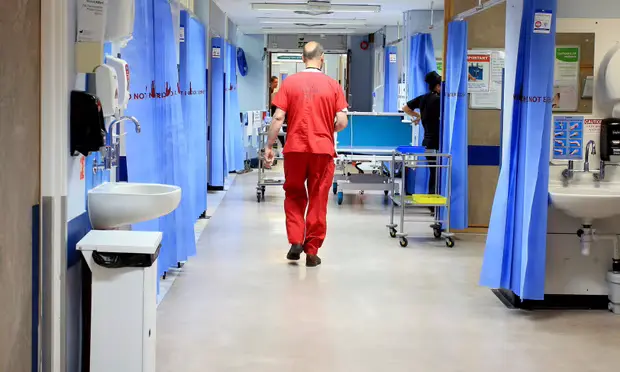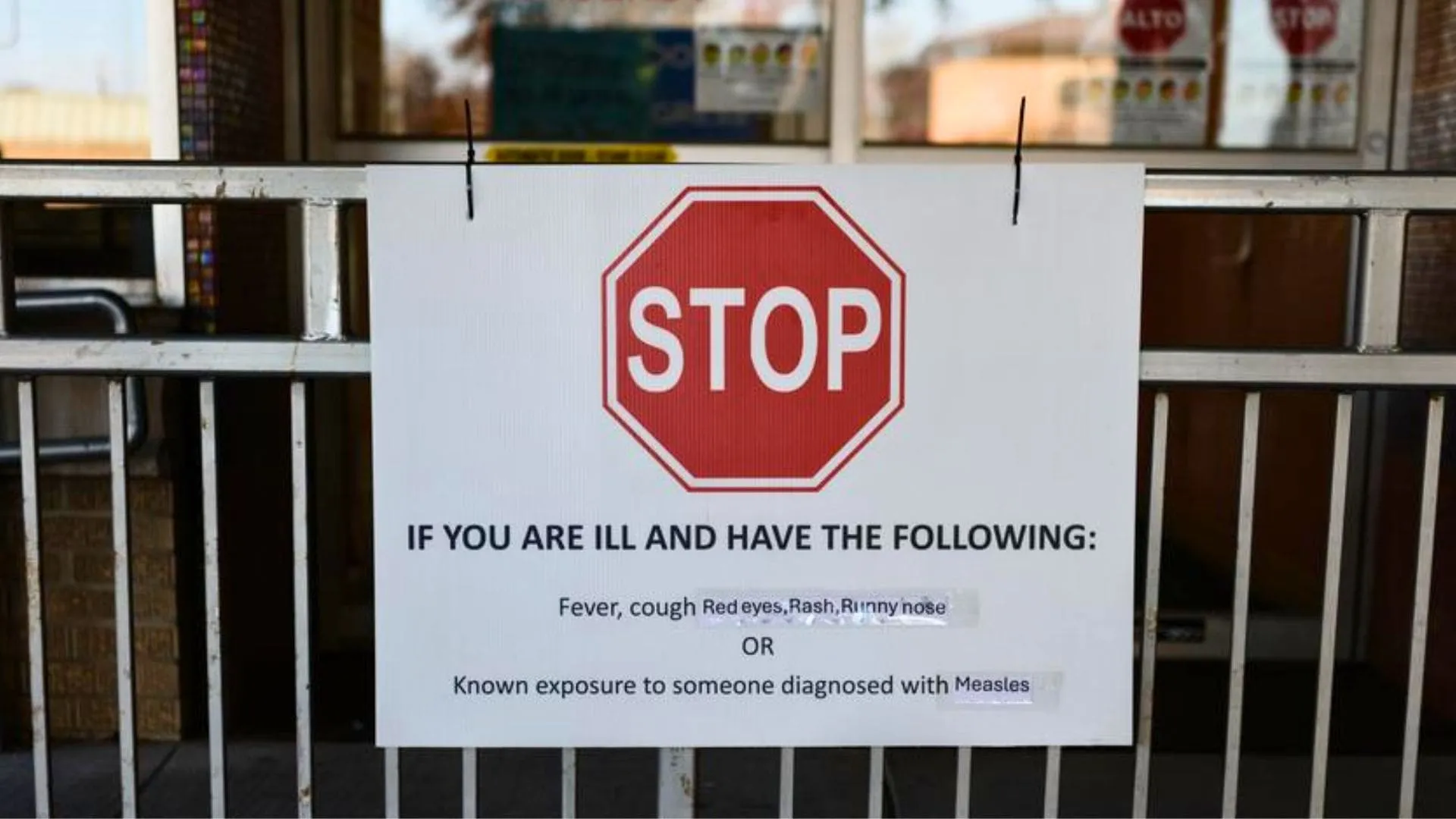The UK Health Security Agency (UKHSA) has issued a warning about the possibility of a second wave of norovirus, the winter vomiting bug that is causing a surge in cases across the country. With the latest data indicating an alarming rise in infections, UKHSA health officials are urging the public to remain vigilant, particularly in vulnerable settings such as hospitals, care homes, and among older adults.
Norovirus, known for causing nausea, vomiting, diarrhoea, stomach cramps, and body aches, is a highly contagious virus that spreads rapidly, particularly in places where people are in close contact with one another, such as hospitals, schools, and nursing homes. While the virus is often self-limiting and does not typically result in long-term complications, it can be severe in certain high-risk groups, such as young children, older adults, and those with weakened immune systems. The virus can lead to dehydration, which may require medical treatment in some cases.
Rising Cases and a Shift in Strains
The most recent figures from UKHSA show a worrying rise in norovirus infections across the UK, with reported cases now at their highest levels in over a decade. In just two weeks, from February 3 to 16, the number of laboratory-confirmed cases surged by 29%, surpassing the five-season average by 168%. This is a stark increase in an already worrying trend, as the UK has been grappling with the winter vomiting bug throughout the season. As of now, the number of cases reported is the highest it has been since UKHSA started tracking data in 2014, with the current figures raising concern that the second wave of norovirus could be upon us.
One of the key factors driving this surge is the shift in circulating strains of the virus. Norovirus typically comes in various strains, and the latest UKHSA data reveals that a new and more contagious strain, GII.17, has been dominating the virus landscape, accounting for 59% of all cases reported in early 2025. This is a significant drop from 76% of cases being attributed to GII.17 just a few months ago, but it is noteworthy that the GII.4 strain, a dominant strain in past years, has made a sharp comeback, now representing 29% of reported cases, up from only 10% just three months ago.
Health experts have indicated that the multiple circulating strains mean that those who have already been infected with norovirus this winter are at risk of being infected again. This shift in viral genotypes complicates the situation, as immunity to one strain does not necessarily confer protection against other strains of the virus, making reinfection more likely.
Vulnerable Populations at Risk
The surge in cases is having a particularly severe impact on vulnerable populations, especially those in hospitals and care homes. People aged 65 and over are the most affected, and the virus is causing symptoms that can be much more severe in these older adults, as well as in children and immunocompromised individuals. In health and social care settings, such as hospitals and care homes, norovirus outbreaks can result in significant disruptions, affecting both patients and staff. The highly contagious nature of the virus makes it challenging to control once it spreads, leading to increased risks of further outbreaks within these environments.
In these high-risk settings, the virus can lead to complications like dehydration, which can be life-threatening, particularly for elderly patients or those with pre-existing health conditions. As a result, healthcare facilities have to implement stringent infection control measures to contain the virus, and staff members are being advised to take extra precautions to prevent the spread of the virus to vulnerable individuals.
The rise in norovirus cases also highlights the challenges faced by the healthcare system in managing seasonal outbreaks. With the UK’s healthcare system already under pressure from other ongoing health issues, the increased incidence of norovirus adds further strain, especially in hospitals that are already dealing with high volumes of patients during the winter months.
Preventive Measures and Public Guidance
In light of the ongoing and rising threat of norovirus, UKHSA has issued several guidelines to prevent further infections and reduce the impact of the virus. These guidelines include recommendations for people who are symptomatic with vomiting and diarrhoea, advising them to stay at home and refrain from visiting healthcare settings, workplaces, schools, and care homes until 48 hours after their symptoms have subsided. This measure is particularly important in preventing the spread of the virus to vulnerable populations in hospitals and care homes, where it can spread rapidly and cause severe outbreaks.
Additionally, the public is being urged to practice good hygiene by washing hands regularly with soap and water, especially after using the toilet and before preparing food. The use of alcohol-based hand sanitizers is not recommended as they are less effective at eliminating the norovirus from the hands. Those who are sick with norovirus symptoms should also avoid preparing food for others until they have fully recovered.
Hospitals and healthcare facilities are being urged to enhance their infection control measures, which include isolating patients with suspected or confirmed norovirus infections, enhancing cleaning protocols, and ensuring that staff members follow strict hygiene practices. Moreover, health officials are emphasizing the importance of staying hydrated during illness, as dehydration is a common and dangerous complication of norovirus.
The Impact of Norovirus on Public Health
The rise in norovirus cases is particularly concerning given the larger public health context. UKHSA experts estimate that the number of reported cases represents only a small fraction of the actual infections occurring in the community. For every reported case, it is estimated that there are approximately 288 unreported cases, suggesting that the actual number of norovirus infections across the UK could be much higher than the reported figures. Based on this estimate, UKHSA has calculated that there could be as many as 3 million cases of norovirus annually in the UK.
While norovirus infections are typically self-limiting and resolve within a few days, the broader public health impact cannot be underestimated. The virus contributes to significant disruptions in healthcare and social care settings, where patients, staff, and visitors are all at risk. Moreover, the increased risk of reinfection due to the shifting strains complicates efforts to control the spread of the virus. With the peak of the norovirus season still to come, health experts are watching the situation closely to determine whether or not the UK has reached the peak of the outbreak or if a second wave is inevitable.
The Need for Vigilance and Continued Awareness
The UK is facing a significant public health challenge with the ongoing norovirus outbreak, which has already reached alarming levels. The shift in circulating strains and the rise in cases, particularly among older adults and vulnerable populations, underscores the need for continued vigilance, enhanced hygiene measures, and clear public guidance to reduce the spread of the virus. Healthcare providers and the public must work together to control this winter outbreak, ensuring that individuals in high-risk groups are protected and that healthcare systems are not overwhelmed by the impact of the virus.
With the second wave of norovirus looming, it is more important than ever for individuals to follow guidelines and adopt preventive measures to protect themselves and others from this contagious and disruptive virus. As the UK battles this ongoing health crisis, public health officials continue to monitor the situation, hoping for a decline in cases as the weather warms but preparing for the potential for a more severe impact in the coming weeks.























